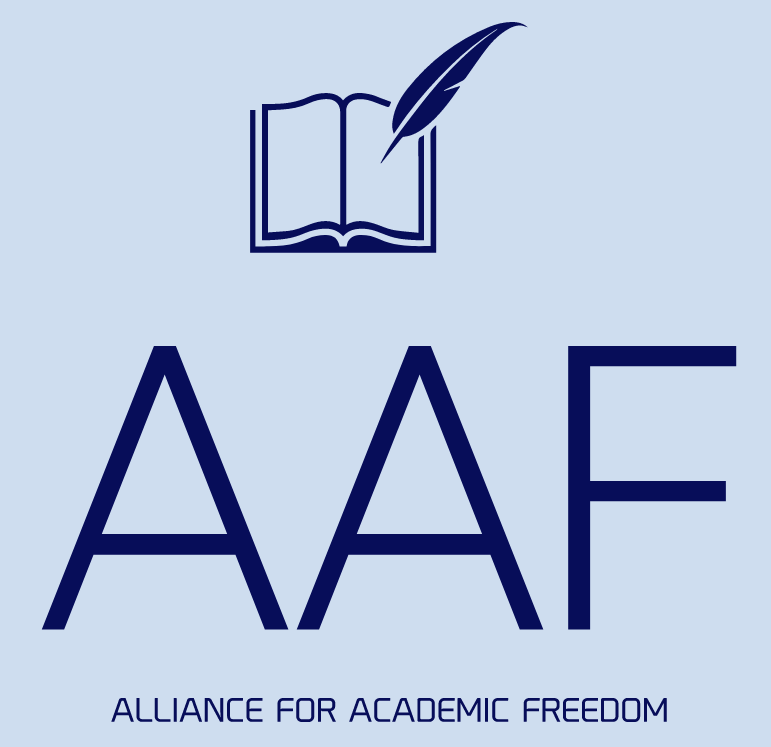This text by the executive committee of the Alliance for Academic Freedom (AAF) is reprinted from INSIDE HIGHER EDUCATION (October 7, 2016):
The University of California, Berkeley, recently briefly suspended a one-credit course already in session as part of the systemwide DeCal program of student-taught courses. The course, Palestine: A Settler-Colonial Analysis, had been promoted on the local Facebook page of Students for Justice in Palestine and gained wide attention both on and off the campus, including assertions that the course promulgated the idea that Israel is an illegitimate state denying Palestinians their basic right to political self-determination.
We think the readings assigned in the syllabus do not present a representative range of views about the Israeli-Palestinian conflict. After a passage was added to the syllabus assuring that a wide variety of views would be entertained, and some additions were made to the opening statement about the purpose of the course, the course was reinstated with the reading assignments unchanged. It may still be valuable for Berkeley to explore whether the oversight process it uses for DeCal courses is adequate and unfolded properly in this case.
It would be fair to argue that the whole matter was overblown, given that this was not a permanent addition to Berkeley’s course catalog. Yet a few issues remain that may merit discussion, given the wide publicity the course received.
The first is whether a course that is politically one-sided or even one that shades from pedagogy into advocacy and activism enjoys the protections of academic freedom. In keeping with ample precedents, we believe that academic freedom gives faculty members the right to advocate for their political views in the classroom and even to design a one-sided syllabus, however much we may disagree with the views expressed. They are not required to produce a politically “balanced” syllabus. To have permanently canceled the course would have been to undermine academic freedom.
At the same time, courses can be professionally criticized for their intellectual and political limitations. We would hold the same view if the course in question had the opposite political slant. In our view, one cannot fully understand the Israeli case without understanding the Palestinian case, and vice versa.
And, as a matter of pedagogical responsibility, no instructor (including a student instructor, as in this case) should disallow contrary points of view in the classroom. In any course, students have the right to present alternative and opposing points of view. They must not be humiliated, embarrassed, condescended to or penalized in grading for doing so. Instead students should be encouraged to agree and disagree when they choose to do so. The instructor of any highly politicized course has a special burden to welcome — perhaps even to encourage — opposing opinion, since not all students are ready to differ with instructor views that are passionately held and expressed. It can be difficult for students to argue for a different position, however, when all the readings assigned for the course point in a different direction. They will have no readings in common on which to draw to represent opposing points of view or scholarly traditions.
In addition, the incident raises the question of the merits and pitfalls of student-taught courses. Because undergraduates attend colleges and universities above all to learn, any role they might take on as instructors is an occasion for their own development as students. Accordingly, student-led courses like those in the DeCal program require especially close review at both the departmental and campus level. Perfunctory faculty approval does not moot that oversight responsibility.
Student teachers do not have the same kind or level of academic freedom as faculty members. They must be explicitly educated about the values and responsibilities enumerated above, about what is gained and lost by a one-sided syllabus, and about why the classroom ought to be a place for something more than the propagation of the instructor’s own politics.
The fact that a single one-credit student-taught course has sparked a national debate about politically biased teaching suggests that on the matter of Israel and Palestine, as well as on other highly contentious issues, there are real hazards in letting students, as opposed to professionally credentialed and qualified experts, formally educate their fellow undergraduates. Faculty members at each institution must decide for themselves whether to offer such opportunities.
Without observing the class or the instructor, we cannot definitively judge the merits of the course. But the fact that we would have opposed the permanent cancellation of the course does not mean that we do not have critiques of this course or similar courses in other colleges and universities.
According to the syllabus, Palestine: A Settler-Colonial Analysis aims to explore a Palestine “in which justice is realized for all its peoples and quality is not only espoused, but practiced.” To do justice to that goal, the syllabus might have benefited from treating the historical varieties of Zionism, the views of those advocates of a two-state solution who think both that the occupation must end and that Israel has a right to be a Jewish state within its pre-1967 boundaries, and proposals that enable both peoples to achieve their national political ambitions.
This statement was jointly authored by the eight members of the AAF executive committee: David Greenberg, Rebecca Lesses, Jeffry Mallow, Deborah Dash Moore, Sharon Musher, Cary Nelson, Kenneth Stern and Irene Tucker. This links to the syllabus of the DeCal course in question: http://www.decal.org/courses/4237.
Alliance for Academic Freedom